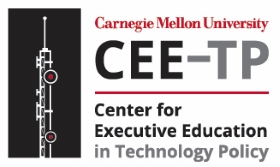Spectrum Management
Instructor: Jon Peha, Professor, Carnegie Mellon University; former Chief Technologist, U.S. Federal Communications Commission (FCC)
This course will teach participants how to manage spectrum in a way that encourages competition, innovation, and investment while limiting harmful interference. This includes management of spectrum for commercial communications services, spectrum for broadcasting, spectrum for government purposes such as public safety, spectrum for satellites, spectrum for sensing devices from radar to radio astronomy, and more. The course will address fundamental issues of spectrum licensing, including defining bandplans, running effective spectrum auctions, and encouraging spectrum markets. It will then present current and more forward-looking approaches to spectrum sharing and spectrum management, including unlicensed bands, multi-tier sharing models, spectrum sensing and spectrum access systems that use databases, band managers, receiver standards to improve spectrum efficiency, spectrum markets and spectrum leasing. It will also address organizational aspects of a spectrum management agency, including making spectrum regulations clear and transparent, working with open standards organizations, and creating procedures and policies for enforcement of spectrum regulations.
- This course is intended for people with a professional interest in spectrum policy, which could include those at a spectrum regulator, those involved in legislation that affects spectrum regulation, and those in the private sector with an interest in spectrum policy
- Upon completing the course, participants will have greater understanding of regulatory basics of spectrum policy, technology that affects spectrum policy, and some of the current controversies over spectrum policy
- No prior knowledge of spectrum policy or wireless technology is required, but some participants may bring their own knowledge of relevant law, technology, economics or policy.

